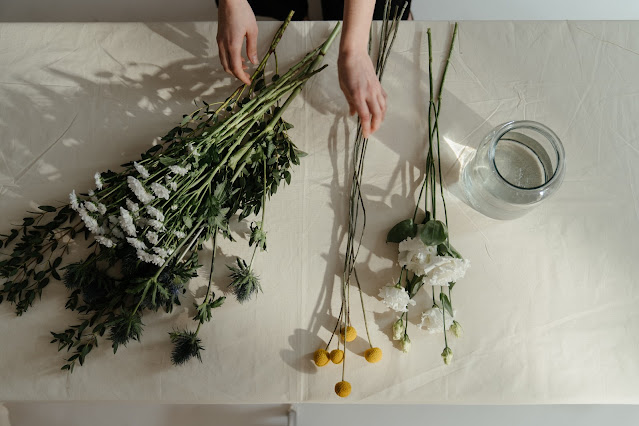Diving into the world of floristry can be an enchanting adventure. The artistry and intricacies involved in arranging flowers offer an exciting way to express creativity while brightening people’s lives. However, as with any other career choice, it comes with its challenges and realities, and it is essential to understand these before venturing down this floral path.
So, are you thinking about becoming a florist? Here are 15 things you need to know before setting out on your blooming journey.
It involves understanding your customers' preferences, crafting customized arrangements, and delivering them at agreed-upon intervals. Subscriptions also offer a unique opportunity to build stronger relationships with your customers.
This might involve working with a varied palette of colors, integrating unusual elements, or experimenting with diverse floral species to create designs that captivate and delight.
So, are you thinking about becoming a florist? Here are 15 things you need to know before setting out on your blooming journey.
1. Flowers Are Growing in Popularity
The first thing you need to understand is the trending growth of flowers and associated products like flower subscriptions. Many people love the idea of receiving or gifting fresh flowers regularly, making subscriptions a popular option. Crafting a flower subscription plan is an excellent way to maintain regular clientele and ensure a steady income.It involves understanding your customers' preferences, crafting customized arrangements, and delivering them at agreed-upon intervals. Subscriptions also offer a unique opportunity to build stronger relationships with your customers.
2. Creativity Is Key
Being a florist is about more than just knowing your roses from your daisies. Creativity is a significant part of the job. The ability to arrange flowers in ways that express different moods, sentiments, and themes is crucial.This might involve working with a varied palette of colors, integrating unusual elements, or experimenting with diverse floral species to create designs that captivate and delight.
3. Knowledge Of Botany Is Crucial
While it's not necessary to have a degree in botany, a basic understanding of plants, flowers, and their care is fundamental in floristry. You need to know the growing conditions and life spans of different flowers, how they can best be used, which ones work best in arrangements together, and how to care for each type to ensure they last as long as possible.4. Physical Stamina Is Necessary
Floristry can be physically demanding. It involves long hours standing, lifting heavy flower buckets, making deliveries, and sometimes working in cold temperatures to keep flowers fresh. If you are considering a career in floristry, you must be prepared for its physically taxing side.5. The Holidays Will Become Your Peak Season
Major holidays, such as Valentine's Day, Mother's Day, and Christmas, become the busiest times of the year for florists. This often means working overtime to fulfill orders, dealing with last-minute requests, and managing stress.6. Customer Service Skills Are Vital
As a florist, you'll spend a considerable amount of time interacting with customers. Good listening and communication skills are important to understand the customers’ needs, handle complaints, and provide an excellent service that will keep them coming back.
Knowing when specific flowers are in their prime will not only allow you to create the most vibrant and attractive arrangements, but it also provides an opportunity for you to guide your customers to more cost-effective choices when their favorite flowers are out of season. Keeping abreast with the seasons helps you to innovate, offering an ever-changing range of products that reflect the natural world at different times of the year.
Marketing your shop, whether that's through social media, local advertising, or partnerships with event planners and other businesses, is a significant part of the job. And don't forget about the logistical elements, like ensuring timely deliveries and managing the cleaning and upkeep of your shop. While the flowers might be the most visible aspect of your work, these background tasks are equally crucial to running a successful business.
This can involve everything from ordering the right quantities of flowers, to knowing how to extend the life of your inventory, to composting unsold flowers. Effective waste management strategies are not only good for the environment but they're also essential for maintaining the profitability of your business.
With the right mix of creativity, perseverance, and business acumen, you can transform a passion for flowers into a thriving career. Remember, every successful florist started with a single seed of an idea, nurtured it, and helped it bloom.
7. Constant Learning Is Part Of The Job
Trends in floristry change all the time, with new techniques, designs, and flower types coming into vogue. To stay ahead, you must be open to continuous learning and be willing to keep up with the latest trends.8. Seasonality Influences Your Work
A major factor that influences your work as a florist is the seasonal variations in flower availability. Each season brings a unique set of flowers, from bright summer blooms to winter's more subdued tones. It's crucial to gain a deep understanding of the flower calendar to make the most out of each season's offerings.Knowing when specific flowers are in their prime will not only allow you to create the most vibrant and attractive arrangements, but it also provides an opportunity for you to guide your customers to more cost-effective choices when their favorite flowers are out of season. Keeping abreast with the seasons helps you to innovate, offering an ever-changing range of products that reflect the natural world at different times of the year.
9. Floristry Is More Than Just Arranging Flowers
Being a florist entails far more than just creating beautiful arrangements. If you're considering opening your own florist shop, you'll have to become adept at a multitude of tasks. From sourcing and purchasing the best flowers from suppliers, managing inventory to ensure freshness and variety, and maintaining financial records, floristry is a business like any other.Marketing your shop, whether that's through social media, local advertising, or partnerships with event planners and other businesses, is a significant part of the job. And don't forget about the logistical elements, like ensuring timely deliveries and managing the cleaning and upkeep of your shop. While the flowers might be the most visible aspect of your work, these background tasks are equally crucial to running a successful business.
10. Networking Is Beneficial
Building relationships with flower growers, suppliers, event planners, and other local businesses can be immensely helpful. Networking can lead to collaborations, better prices, and an increased client base.11. Waste Management Is A Key Consideration
Floristry is a field where waste management plays a significant role. Flowers are perishable, and even with the best care, you're likely to end up with some unsold inventory. Learning to minimize waste, manage it effectively, and dispose of it responsibly is a crucial aspect of being a florist.This can involve everything from ordering the right quantities of flowers, to knowing how to extend the life of your inventory, to composting unsold flowers. Effective waste management strategies are not only good for the environment but they're also essential for maintaining the profitability of your business.
12. Certification Can Give You An Edge
While not mandatory, certification from a professional florist association can give you an edge. It not only provides you with essential skills but also signals to customers that you’re a professional.13. Start-Up Costs Can Be High
Opening your own florist shop can be costly. You'll need to budget for the cost of renting a space, purchasing refrigeration units, buying initial inventory, marketing, and other start-up expenses.14. You’ll Need A Good Eye For Detail
A great florist has a sharp eye for detail. From spotting the freshest flowers to purchase, to creating finely balanced arrangements, to presenting your products in an appealing way, attention to detail is vital.15. The Reward Is Worth It
Despite the challenges, many florists find their work deeply rewarding. There's a unique joy in working with beautiful products and helping customers express their emotions through your creations.Conclusion
Floristry is an enchanting and rewarding field that offers endless opportunities for creativity and connection with customers. But like any career, it comes with its own set of challenges. Understanding these aspects before diving in will help you prepare for a successful career in floristry.With the right mix of creativity, perseverance, and business acumen, you can transform a passion for flowers into a thriving career. Remember, every successful florist started with a single seed of an idea, nurtured it, and helped it bloom.







.jpg)






